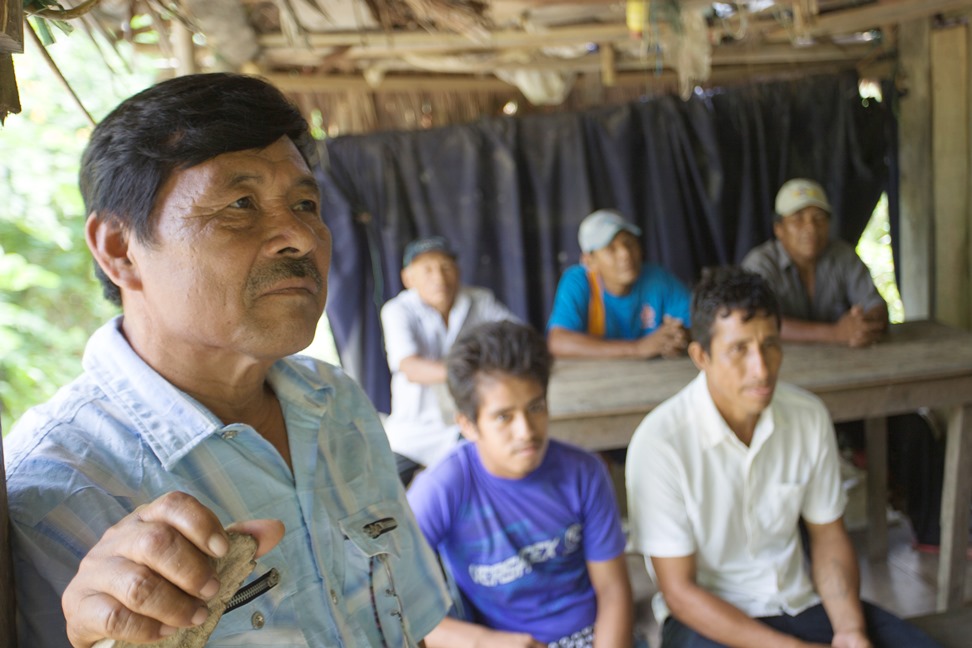
By Manolo Berjón and Miguel Ángel Cadenas*
Indigenous peoples do not think in the abstract. Thinking, which is done with the heart, is connected to love for someone. Revenge, then, is an act of love for family members, which leads to aggression against an enemy. The emphasis is on love for the family members; the consequence is aggression against the enemy. If you do not kill the enemy, there is a danger that the enemy could exterminate your entire family. Revenge, then, is the structuring of time: it connects past affronts with future aggression through present narratives.
Every death is a murder, the result of aggression, generally through witchcraft. There is no natural death. Illness is the first link in a chain that ends in death. In December 2017, in a Kukama community, a man drowned after falling from the boat in which he was traveling on the river. A few days later, another adult in the same community died unexpectedly. The families of the two dead men were furious and pointed to a possible witch, whom they wanted to kill. The afternoon after the second burial, the entire community held an assembly to determine who was responsible for the deaths.
This is the general context. Forgiveness, for the Kukama, tends to occur when a person is dying. A person who is agonizing on his or her deathbed calls for relatives and neighbors and asks forgiveness. If the person is conscious and can speak, this is done through words. If the person can no longer speak, it is done through physical contact and presence; if physical presence is not possible because of distance, it occurs through dreams. If the person who is dying calls someone, generally a child, who does not want to to see them, the person who is dying will annoy the other after death, through dreams and noises in the dark.
Priests, pastors and others are seen as shamans. This is not new; if we read the chronicles of the Jesuits of Maynas, we see that the most successful Jesuits were the ones who were considered to have more shamanic characteristics. Given this context, is confession an important sacrament? We believe it is. We are thinking of indigenous peoples who have had more contact with the evangelizing process, such as the Kukama, and especially the urban indigenous people who live in our parishes. A few examples can help illustrate our point.
“I want to confess that I beat a dog with a stick.” This is not a trivial issue. The person making this confession does so with a real sense of sin and seriousness. No Westerner would confess such a thing—except, perhaps, a defender of animal rights, and they often remain outside of the church. Sin is personal, and although there are certain objective conditions of sin, it is necessary to have a subjective awareness in order to commit a sin [knowledge and consent]. We can listen without understanding what the person is telling us. For the Kukama, however, dogs are also persons (in Spanish, gente). And to beat a dog, from the indigenous perspective, is to mistreat a person. Hence the awareness of sin.
The cultural hero of the Kukama people is transformed into a mangy dog that visits houses. When people reject it, it goes elsewhere. But when they accept it, it stays. When a family takes the animal in and the young daughter helps it bathe, fish known as mojarras spring from its sores and the mangy dog turns into a handsome young man whom the girl ends up marrying. The concept of personhood in Amazonia is much broader than in the Western world. Animals, objects, even stars can behave like persons.
On another occasion, also in confession, a woman said, “Father, I have been stingy with food for my child.” The woman did not have food—that was why she fed her child sparingly. But in her subjective conscience, she had no doubt that she had committed a sin. Obviously, it is important to console and to alleviate the person’s anxiety, but it is also absolutely necessary to understand how indigenous people live. Food is a vehicle for transmitting love, caring, protection, affection. Not being able to provide the necessary food is equivalent to withholding love. Hence the woman’s extreme anguish at not having been able to feed her child as she would have liked. Being ungenerous is the greatest indigenous sin; it implies denial of a relationship, accumulation, the breakdown of distribution.
There are other examples, but these are enough for our purpose. From time to time, we hear the mantra repeated that confession is a way of “controlling consciences,” an external means of directing a person. But that criticism, which might be valid in the West, takes on a different quality in Amazonia. With these two examples, we see how indigenous people have an awareness of sin that differs from the Western view. An intercultural encounter of the highest order occurs—or should occur.
Managing this intercultural encounter requires great patience, tact, cultural sensitivity and spiritual discernment. Otherwise, not only may it become an “opaque event,” devoid of comprehension, but it could also result in the cultural imposition of the priest’s view on the indigenous person. It is important to keep in mind that the indigenous person also has a will and is not a “blank slate.”
One final example illustrates another fundamental characteristic of Amazonian people. A person confesses the sins of his or her partner or children. It might seem to us that this is not a confession—and it certainly is not, from a Western point of view. But for indigenous people, a person is not an “individual.” A person is himself or herself plus the sum of all the family members with whom he or she shares life, the food that gives strength and contributes to their emotional state, the gifts they receive … (“cumulative person”). If a person has committed a sin, then the spouse who eats, sleeps and works with that person participates in the same sin. That is why they confess it. The person who committed the sin may not dare to go to confession, but he or she feels forgiven if the spouse has received absolution. This makes us think that confession does not create “individuation”—at least, not necessarily.
In short, confession—and we are talking here about the city of Iquitos—should be an intercultural encounter of the highest order. If we do not perceive aspects such as asymmetries of power or different concepts of personhood, confession slides toward being an “opaque event” that degenerates into a weakening of indigenous people. But if we remain open to the difference, confession can be an intercultural encounter of the highest order, where God becomes manifest.
We might think that this is not so much confession as spiritual accompaniment. In practice, many people who go to confession do so to receive both guidance and forgiveness. We do not consider it important here to draw a boundary between the two.
Sin, at least for the Kukama people, is external; it comes from outside. It happens when the person is weak and allows himself or herself to be seduced by evil. To avoid sin, therefore, the best antidote is to strengthen the person. When a person is strong, evil cannot seduce them; they resist it. Eroding indigenous beliefs is a form of debilitation that has no benefit and leads to weakness. The manifestation of this deterioration is anomie: alcoholism, abuse of women and children, all types of dependence and, in extreme situations, even suicide. Christianity must use all of its resources to strengthen people.
__
*Manolo Berjón and Miguel Ángel Cadenas are Augustinian missionaries in Iquitos.
___
Traduced by Barbara Fraser
